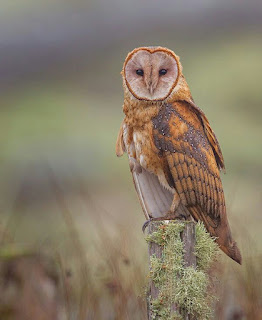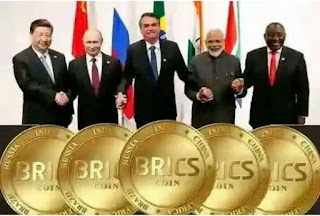Where were ancient Egyptians black?
In 1787, Count Constantine de Volney -- a French nobleman, philosopher, historian, orientalist, and politician -- undertook a journey to North Africa in late 1782 and reached Egypt where he spent nearly seven months. At this time, Egypt was colonized by the white skin Turkic-Khazar tribes under the Ottoman empire and the blood of the people were diluted by white Vandals from an earlier period as well as interracial relationships engaged with various foreign rulers, so, the the racial demographics changed considerably albeit indigenous Black Egyptians were probably rendered invisible as today. However, at this time, the ancient Spinx was not defaced or distorted as most are mysteriously today. From his observations of an undefiled Spinx, he remarked:
"Just think that this race of Black men, today our slave and the object of our scorn, is the very race to which we owe our arts, sciences, and even the use of speech! Just imagine, finally, that it is in the midst of people who call themselves the greatest friends of liberty and humanity that one has approved the most barbarous slavery, and questioned whether Black men have the same kind of intelligence as whites!" by Count Constantine de Volney 1787[1]
Of course, it was common knowledge that ancient Egypt was Black albeit many evil doers incessantly attempt to write the Black race out of historical memory. However, in a book called The Persian Wars by Herodotus which was written in 440 BCE but translated by George Rawlinson, a clear and unmistakable description of how ancient Egyptians and its surrounding nations looked is shared. Herodotus was inquiring into the Colchians, a nation of people that possesed similar cultural elements as Egypt. He stated:
There can be no doubt that the Colchians are an Egyptian race. Before I heard any mention of the fact from others, I had remarked it myself. After the thought had struck me, I made inquiries on the subject both in Colchis and in Egypt, and I found that the Colchians had a more distinct recollection of the Egyptians, than the Egyptians had of them. Still the Egyptians said that they believed the Colchians to be descended from the army of Sesostris. My own conjectures were founded, first, on the fact that they are black-skinned and have woolly hair, which certainly amounts to but little, since several other nations are so too; but further and more especially, on the circumstance that the Colchians, the Egyptians, and the Ethiopians, are the only nations who have practised circumcision from the earliest times.
So, in trying to identify the historical roots of the Colchians through informaton gathering-interviews and observations, Herodotus arrived at the conclusion of their shared physical appearance in possessing Black skin and cultural practice of circumcision that they were identical as the ancient Egyptian.This means, as a primary source or first hand observer or witness, Herodotus saw the original Egyptians as a Black race.
Another piece of evidence, in the same book, pertains to the mystical beliefs of the Greeks, which they acquired and learned from Egypt.[2] In discussing the inner workings of the oracles in Greece, which was a spiritual post governed by Egyptian women as in Egypt, Herodotus mentions:
The Dodonaeans called the women doves because they were foreigners, and seemed to them to make a noise like birds. After a while the dove spoke with a human voice, because the woman, whose foreign talk had previously sounded to them like the chattering of a bird, acquired the power of speaking what they could understand. For how can it be conceived possible that a dove should really speak with the voice of a man? Lastly, by calling the dove black the Dodonaeans indicated that the woman was an Egyptian. Again, Herodotus exposes that the oracle workers of ancient Greece were Black Egyptian women, which explains why the Greeks had adopted Egyptian gods/goddesses.
Overall, the regions of North Africa and the Middle East have been conquered as well as overran by various invaders and races as the case of Egypt. So, it will always be a struggle to interpret the past through a modern lens. However, Greek historian Herodotus can be our eyes and ears in explaining what the ancient Egyptians looked like by reading what he saw and observed in 440 BCE.
"Just think that this race of Black men, today our slave and the object of our scorn, is the very race to which we owe our arts, sciences, and even the use of speech! Just imagine, finally, that it is in the midst of people who call themselves the greatest friends of liberty and humanity that one has approved the most barbarous slavery, and questioned whether Black men have the same kind of intelligence as whites!" by Count Constantine de Volney 1787[1]
Of course, it was common knowledge that ancient Egypt was Black albeit many evil doers incessantly attempt to write the Black race out of historical memory. However, in a book called The Persian Wars by Herodotus which was written in 440 BCE but translated by George Rawlinson, a clear and unmistakable description of how ancient Egyptians and its surrounding nations looked is shared. Herodotus was inquiring into the Colchians, a nation of people that possesed similar cultural elements as Egypt. He stated:
There can be no doubt that the Colchians are an Egyptian race. Before I heard any mention of the fact from others, I had remarked it myself. After the thought had struck me, I made inquiries on the subject both in Colchis and in Egypt, and I found that the Colchians had a more distinct recollection of the Egyptians, than the Egyptians had of them. Still the Egyptians said that they believed the Colchians to be descended from the army of Sesostris. My own conjectures were founded, first, on the fact that they are black-skinned and have woolly hair, which certainly amounts to but little, since several other nations are so too; but further and more especially, on the circumstance that the Colchians, the Egyptians, and the Ethiopians, are the only nations who have practised circumcision from the earliest times.
So, in trying to identify the historical roots of the Colchians through informaton gathering-interviews and observations, Herodotus arrived at the conclusion of their shared physical appearance in possessing Black skin and cultural practice of circumcision that they were identical as the ancient Egyptian.This means, as a primary source or first hand observer or witness, Herodotus saw the original Egyptians as a Black race.
Another piece of evidence, in the same book, pertains to the mystical beliefs of the Greeks, which they acquired and learned from Egypt.[2] In discussing the inner workings of the oracles in Greece, which was a spiritual post governed by Egyptian women as in Egypt, Herodotus mentions:
The Dodonaeans called the women doves because they were foreigners, and seemed to them to make a noise like birds. After a while the dove spoke with a human voice, because the woman, whose foreign talk had previously sounded to them like the chattering of a bird, acquired the power of speaking what they could understand. For how can it be conceived possible that a dove should really speak with the voice of a man? Lastly, by calling the dove black the Dodonaeans indicated that the woman was an Egyptian. Again, Herodotus exposes that the oracle workers of ancient Greece were Black Egyptian women, which explains why the Greeks had adopted Egyptian gods/goddesses.
Overall, the regions of North Africa and the Middle East have been conquered as well as overran by various invaders and races as the case of Egypt. So, it will always be a struggle to interpret the past through a modern lens. However, Greek historian Herodotus can be our eyes and ears in explaining what the ancient Egyptians looked like by reading what he saw and observed in 440 BCE.


Comments
Post a Comment